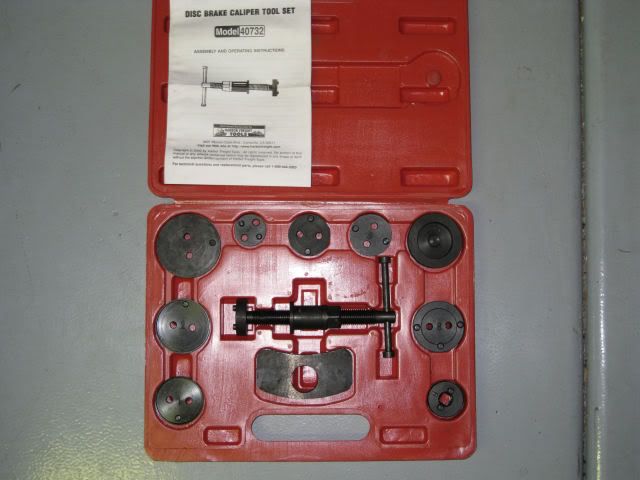I have been looking at and listening to my brakes as of late to get an idea as to what areas will need attention.
First task will be to complete the assembly of a pressure bleeder apparatus to use with my kinda newly acquired compressor, and I am wondering what other brake related tools/gear I should be gathering for my first brake job. I have some Bendix Ceramlub in hand, but is there a baseline guide for brake specific tools that I should invest in for maintaining my GM domestic?
First task will be to complete the assembly of a pressure bleeder apparatus to use with my kinda newly acquired compressor, and I am wondering what other brake related tools/gear I should be gathering for my first brake job. I have some Bendix Ceramlub in hand, but is there a baseline guide for brake specific tools that I should invest in for maintaining my GM domestic?


